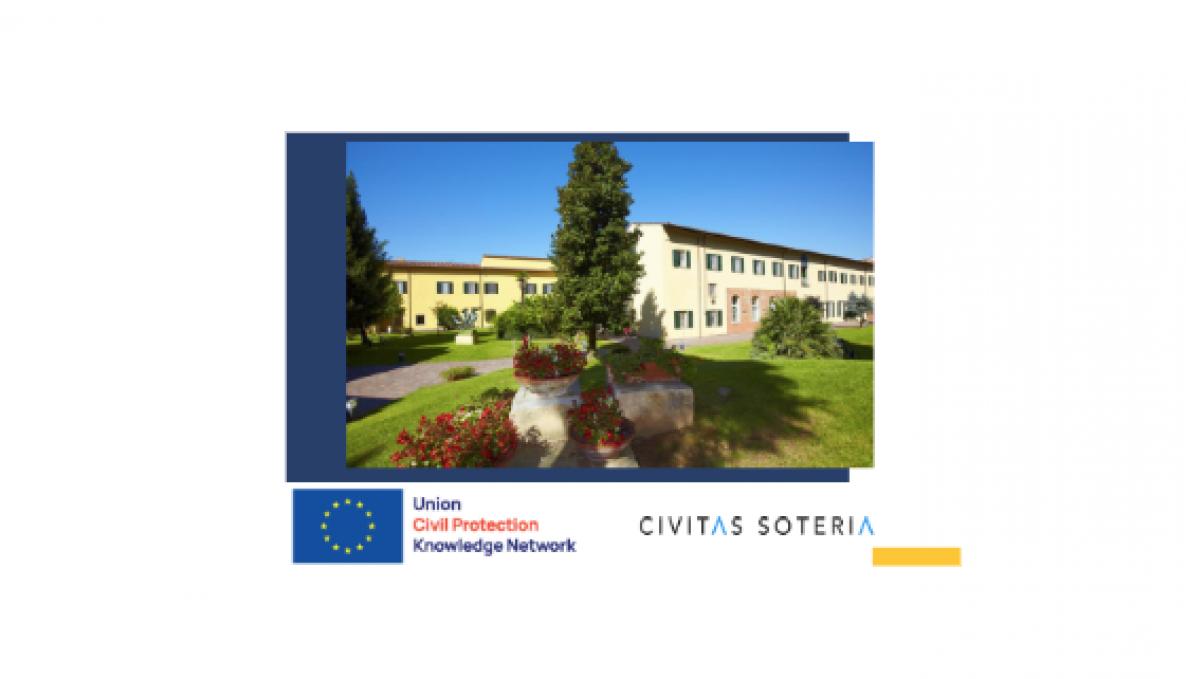Disaster risk management: a Summer School on the dialogue between science and politics at Sant'Anna School from Monday, May 29 to Wednesday, May 31. Participants from all over Europe to reflect on scientific knowledge and public decisions
Scientific leader is Andrea de Guttry, Professor of International Law at the Sant'Anna School. During first day speakers also by Fabrizio Curcio, Christos Stylianides, Maria Chiara Carrozza. Patrícia Gaspar, Deputy Minister of the Interior of Portugal and former Deputy Commander of the Portuguese National Authority for Emergencies and Civil Protection, participates in the final proceedings

From 29 to 31 May 2023, the Sant’Anna School of Advanced Studies is hosting a Summer School on “Evidence for Policy in Disaster Risk Management”, organised by the Civitas Soteria Consortium (which is led by research and consulting firm ICF and comprises, in addition to Sant’Anna, civil protection departments of multiple European States), on behalf of the European Commission’s Directorate-General for European Civil Protection and Humanitarian Aid Operations (DG ECHO) and with the support of the Union Civil Protection Knowledge Network, which promotes the sharing of knowledge in matters of civil protection among all relevant national and European actors.
The event, which is aimed at around 70 scientific experts and policy makers from all States participating in the EU Civil Protection Mechanism, as well as from EU institutions and the United Nations, consists of plenary sessions and six thematic Masterclasses, which are centred on the complex relationship between scientific knowledge and public decision-making. The training aims to delve – through a combination of theoretical reflection and strongly interactive tools and methods – into topics including the management and use of climate change-related information; foresight models; the role of technical experts in the decision-making process; risk communication; international disaster law; and the economics of risk management.
The event will be launched on 29 May at 2 pm in the Aula Magna of the Sant’Anna School, with a plenary session – streamed live on the YouTube channel of the School – with distinguished speakers including Christos Stylianides (Greece's Minister for the Climate Crisis and Civil Protection, and former EU Commissioner for Humanitarian Aid and Crisis Management), Maria Chiara Carrozza (President of Italy’s National Research Council, and former Minister of Education, University and Research) and Fabrizio Curcio (Head of the Italian Department of Civil Protection).
On 30 May, the parallel thematic Masterclasses, which will be run two times during the day to allow for a maximum number of participants to attend, will include both theoretical analysis and the examination of case studies, simulation of operational scenarios and other interactive tools. The Masterclasses will be held by high-level experts and policy makers from renowned national and international public and academic institutions, including the European Commission’s Joint Research Centre, the Organization for Economic Co-operation and Development, and universities from all over Europe.
A final plenary session will be held on the morning of 31 May, where the outcomes of the two previous days will be shared and discussed. The closing speech will be given by Patrícia Gaspar, Portugal’s Secretary of State for Home Affairs and former Deputy National Commander of the Portuguese National Authority for Emergency and Civil Protection (ANEPC).
According to Andrea de Guttry, professor of International law at the Sant’Anna School and scientific coordinator of the Summer School, “this is a major event both from a scientific perspective and from an operational one. Our Consortium greatly appreciates the opportunity given by the European Commission to organise and contribute to it. The Summer School provides an opportunity for relevant professionals to share their views, build common models of analysis, interpretation and decision-making that are based on scientific evidence, and expand their networks. By pooling different experiences and skills, the aim is to address – ever more effectively – crisis situations at national and European levels”. An opinion shared by Artur Malantowicz (Team Leader, European Commission): “We strongly supported the idea to hold the Summer School in an academic context, to give participants the opportunity to reflect critically on the relevant topics and get back to their daily tasks not only with greater awareness of the complexity of the science-policy interface, but also with operational guidelines that they can apply immediately, in the form of best practices and lessons learnt”.



